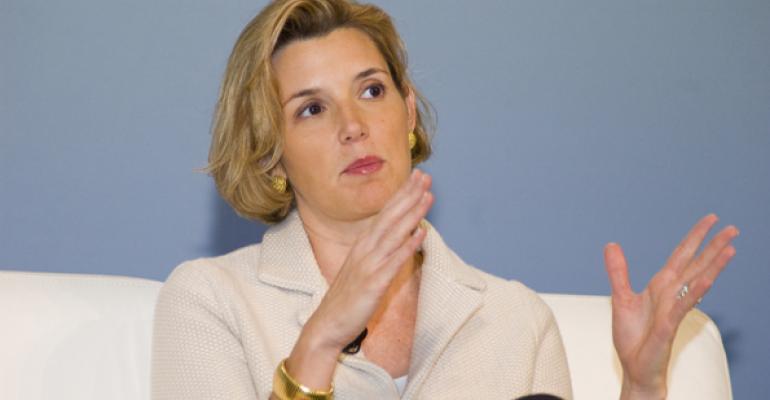If active money managers can’t beat the market, how can a financial advisor be expected to? They can’t, or that’s the idea behind a recent LinkedIn post by Sallie Krawcheck, former president of Merrill Lynch’s thundering herd. Investors should not hire a financial advisor based on performance, she says, but rather, for these five reasons:
Press you to answer questions you don’t want asked, like how you plan to take care of your aging parents if you need to, whether your will is up to date, how you are going to send your kids to college, what you will do if you lose your job. These are the types of questions that make most of too uncomfortable to ask ourselves.Put together a financial plan. Very few people ever, ever do this on their own. And most drag their feet on doing it with their Financial Advisor, too. It takes time and it can hurt. But it matters.
Identify risks in your portfolio that you might look right past, like being overweight the US (which is most of us in the US) or being mostly invested in tech stocks, when you’re in the tech industry.
Talk you through market volatility. Most of us energetically claim we don’t need this. It’s hard to project forward an image of ourselves being nervous or scared, and our recollection of past pain has been shown to fade over time. (Just ask any woman who has been through childbirth more than once!) But another voice besides your own during tough markets can be invaluable.
Identify your biases. This is a biggie. Many of us think we don’t really have any….which is exactly the point. One big one: women tend to be more risk-averse than men. That is neither good nor bad of itself, but it is something that should be tested and pushed at a bit, given that women as a group also earn less and live longer than men. As a result, they could perhaps tolerate a bit more risk.
True, the industry’s changing; as we’ve reflected in the rebranding of WealthManagement.com, investors are demanding holistic financial planning. When performance failed in the financial crisis, investors wanted more out of their relationships with advisors.
All are good points, and many perhaps that advisors are missing. That said, we shouldn’t overlook the investment side of things. Just look at how fund flows have gone in the last five years; retail investors have poured money into bond funds, with little payoff. Meanwhile, they’ve yanked money out of domestic equity funds, only to miss some of the best stock returns since the crisis. Her point that advisors should talk clients through market volatility is well-said. Investors need someone who’s not going to succumb to the fear, greed and other emotions that can all-too-often dominate our behavior.
Besides that, investors need an objective party to help them navigate the wave of new products that are often characterized by high fees and black boxes. If it sounds too good to be true, it probably is.
Do you agree with Sallie?




